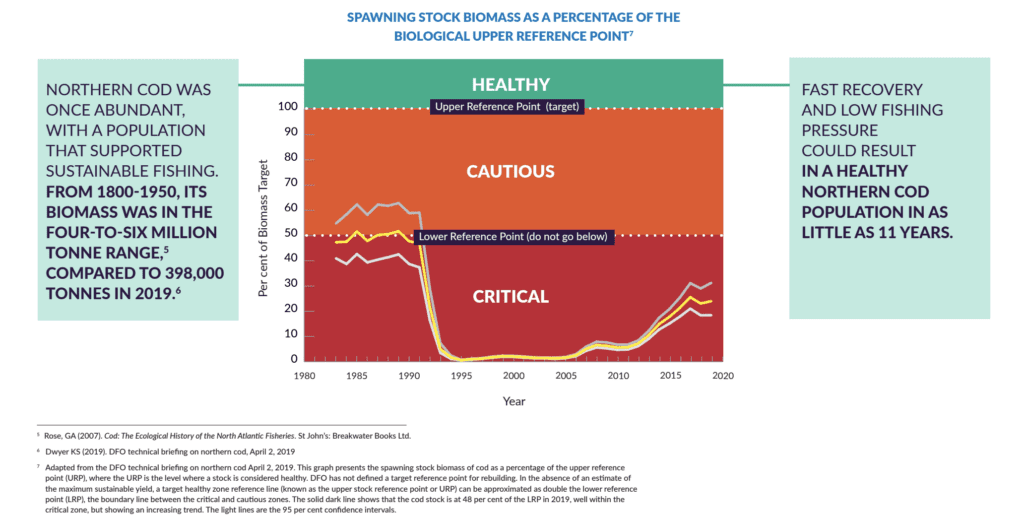November 21, 2022
The story of cod and a case for rebuilding
Estimated reading time: 0 minutes
Canada has one of the largest fishing economies in the world, employing nearly 70,000 people across the country. But Canada’s recent fishing history has been marked by one of the most famous fishery collapses in modern times. In 1992, the Atlantic cod population on Canada’s northeast coast collapsed under fierce fishing pressure to less than one per cent of its historic biomass. This collapse – the largest fisheries collapse the world has ever seen – is a legacy of fisheries mismanagement.
Some 30 years later, northern cod populations have not yet returned to healthy levels. But the story doesn’t end here.
Signs of a fragile recovery of northern cod bring hope, and with it, opportunities to rewrite the wrongs of the past. Today, northern cod is showing small, incremental increases in biomass. While good news, it’s still less than half the amount of biomass that would see the population move out of the critical and into the cautious zone, let alone move it into the healthy zone. These small increases have yielded some calls for substantially higher fishing quotas, to start heavily fishing this stock again. History has shown that putting high fishing pressure on a population prematurely, before stocks are sufficiently large and resilient, can thwart the recovery and economic potential of fisheries. Additionally, this stock still doesn’t have the tenants of good fisheries management in place, such as a strong rebuilding plan to support it’s recovery.

With low fishing pressure and under favourable environmental conditions, a rebuilt northern cod fishery could provide 16 times more jobs than today and five times more economic value. The long-term potential of northern cod vastly outweighs the limited short-term returns we might get from it now. Let’s not repeat the past. By focusing on the long-term health of northern cod, rather than short-term gains, we can create a profitable, sustainable fishery that will support communities for generations to come.
The benefits of rebuilding fisheries will also extend well beyond the fishing sector. This includes increased biodiversity and restored ecosystems and social-cultural values. More abundant fish populations also contribute to healthy ecosystems and food webs. With the added impacts of climate change, there is a clear sense of urgency to rebuild entire marine ecosystems and ensure they, and our communities, are as healthy and resilient as possible.
To learn more about the health and status of Canada’s fisheries and wild fish populations, visit FisheryAudit.ca.

